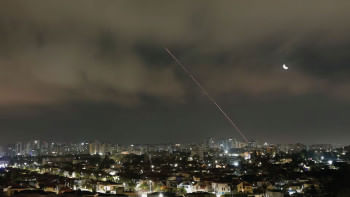Who will rule the Middle East?
The latest tiff between Saudi Arabia and Iran has been a decade in the making. The execution of a Shia cleric, the subsequent storming of the Saudi embassy in Tehran; Iran's supreme leader declaring "God's hand of retaliation will grip the neck of Saudi leaders" did not happen in a day. The clinching of the nuclear deal between the United States and Iran did not go down well with the Saudis. The freeing up of sanctions and assets worth US$100 billion sent alarm bells ringing through the corridors of power in Riyadh and the proxy wars being fought between the two religious super powers in the region has cost the lives of hundreds of thousands in Syria, destabilised Iraq and Yemen; to a lesser extent Lebanon and Bahrain.
This is a war of supremacy over who will rule over the Muslim world, Sunni-led Saudi Arabia or Shia-led Iran – pure and simple. The Sauds view themselves as the custodians of Islam and view Shias as heretics. The rise of Iran ever since the revolution in 1979 is perceived as a direct threat to the House of Saud. The manner in which outfits such as Hezbollah have grown dominant in Lebanese politics; the fact that a Shia-led government now rules Baghdad and that Assad-led Syria remains in the seat of governance – no matter how diminished, are perceived to be Iran's growing influence in the region – a condition that is unacceptable to Riyadh. Which is perhaps why, we see a more hawkish approach by the Saudis in neighbouring Yemen – where it has led a coalition of predominantly Sunni-led States to intervene militarily.
The West's rapprochement with Tehran is not being taken lightly. The entire region is steadily descending into a series of proxy wars where neither side is willing to back down. That spells disaster for war-torn countries like Syria, but who is counting the loss in human lives? Is it any wonder that peaceful protests in Syria turned violent over a very short span of time? With money being channelled into opposition groups from the Saudis, the Turks and Qatar, the Syrian spring has turned into one of the most enduring and bloody conflicts in the Middle East and none of the major foreign powers can do anything about it.
Tehran for its part sees itself embroiled in a long-term battle to become the citadel of hope for all Shiite communities in the region. And here it gets interesting. All Sunni-led countries in the region have small to sizeable Shia minorities (and sometimes majority as in the case of Bahrain) living within their borders: Saudi Arabia (10-15%), Qatar (14%), Kuwait (36%), Lebanon (27%), Palestinian Authority (5%), Jordan (2%), UAE (15%), and so on. Even prior to the execution of the Saudi Shiite cleric, Iranian proxy groups were threatening to openly declare hostilities against Saudi Arabia. This is evident by a song released by 'Khataib Hezbollah' in January, 2015 (which is an Iraqi Shiite militia and listed by the US State Department as a terrorist outfit): "The enemies of God will not be safe…Ali's enemies will fear him…We will avenge Sheikh Nimr if he is executed…Our brigades will roar like a lion." And if we follow the media reports, other similar groups have been drumming up their intention to take the war to Riyadh. In the immediate aftermath of the cleric's death, we find practically all militias supported by Tehran issue similar threats, from Lebanon's Hezbollah to Iraq's Asaib Ahl al-Haq, the Badr organisation, Harakat Hezbollah al-Nujaba, and Kataib Sayyid al-Shuhada, etc. All these groups and others are an extension of Iran's foreign policy.
The cat-and-mouse game being played out between Riyadh and Tehran and their regional allies are all part and parcel of the greater geopolitical game between these two dominant religious powerhouses of the Mid-East. If Iran can, even on a limited scale, through its proxies or by inciting the local Shiite populace in the Kingdom of Saudi Arabia (KSA) put a dent in its Eastern province, then Iran will have scored a major goal; because the eastern province of KSA sits squarely on the Persian Gulf and is probably where KSA gets most of its oil from. Hence a "problem" there would mean a big problem for the whole Saudi economy. Similarly, if the Sunni opposition or even the IS manages to push Assad into a situation where he is eased out of the equation somehow, it would deal a major blow to Iran's ability to project power beyond its borders – at least from Riyadh's point of view.
The gloves have come off finally. There is now open animosity between Iran and KSA. The rest of the Muslim world is being cowed into submission through threats or deal-sweeteners. But the immediate danger lies in the region itself. We have to wait to see precisely how each of these powers and their allies will project their power to counter the other. And while all that is going on, we can effectively write off settlement of the Syrian conflict – because the rest of the world are now bystanders, or mere spectators in this "winner takes all" game where sectarian violence is being fuelled to serve the national interests of these two nations and peace has been put on the back burner.
The writer is Assistant Editor, The Daily Star.

 For all latest news, follow The Daily Star's Google News channel.
For all latest news, follow The Daily Star's Google News channel. 



Comments